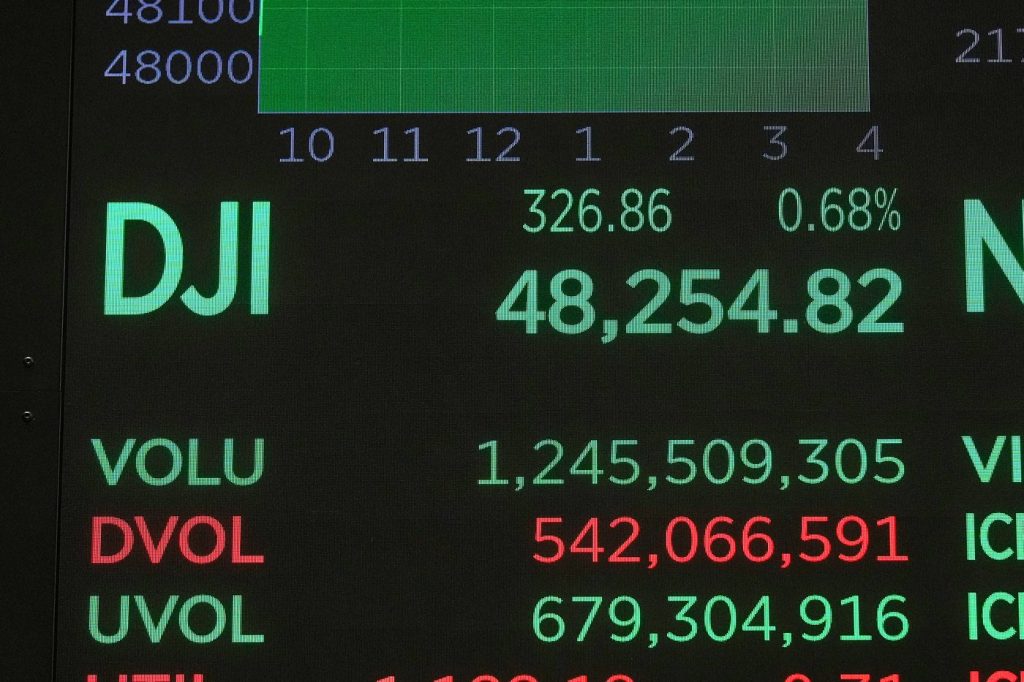MANILA, Philippines (AP) - Asian shares exhibited mixed performances on Thursday following a session in the U.S. where stocks approached record highs. U.S. futures showed slight gains, while oil prices experienced a decline.
In Japan, the Nikkei 225 index rose by 0.2%, reaching 51,139.48 as investor sentiment improved with the conclusion of the prolonged U.S. government shutdown. President Donald Trump signed a government funding bill on Wednesday night, bringing an end to a historic 43-day shutdown that had significant repercussions for federal employees, resulting in unpaid work and long lines at food banks.
Stephen Innes of SPI Asset Management commented that the shutdown not only stalled federal spending but also postponed vital economic data. He noted, "for markets, the only line that matters is simple: the lights are coming back on."
Meanwhile, Hong Kong's Hang Seng index decreased by 0.6% to 26,766.71, while the Shanghai Composite index saw a modest gain of 0.4%, reaching 4,016.24, buoyed by expectations of lending updates from mainland China.
Australia's S&P ASX 200 index dropped by 1% to 8,715.00, marking its third consecutive decline. This downturn followed strong employment data which revealed a reduction in unemployment from 4.5% in September to 4.3% in October, dampening hopes for imminent interest rate cuts.
South Korea's Kospi index fluctuated but ultimately gained 0.1%, closing at 4,154.03. Taiwan's Taiex index, after showing earlier gains, slightly fell by 0.1%, while India's BSE Sensex declined by 0.2%.
On the previous day, the S&P 500 added 0.1% to close at 6,850.92, just shy of its all-time high set a few weeks prior. The Dow Jones Industrial Average surged by 0.7%, setting a new record for the second consecutive day at 48,254.82, while the Nasdaq composite slipped by 0.3% to finish at 23,406.46.
Advanced Micro Devices (AMD) stood out in the market, witnessing a 9% rise after its CEO, Lisa Su, projected an expected annual compound revenue growth exceeding 35% over the next three to five years, attributing this positive outlook to "accelerating AI momentum."
Stocks connected to the artificial intelligence sector have shown volatility, as investors weigh their potential for further growth against already substantial price increases. Although these stocks have been significant contributors to the U.S. market's record performances amid a slowing job market and high inflation, some critics have drawn parallels to the dot-com bubble of 2000, cautioning against potential overvaluation.
Nvidia, known for its AI chips, has faced a 4.6% drop in stock price over the month thus far after experiencing a dramatic increase in value over the past five years. Its stock price has been erratic, while Palantir Technologies also faced a 3.6% decrease, marking one of the more significant losses in the S&P 500 on that day.
Concerns regarding the valuation of U.S. shares remain broadly relevant, though not as intensely directed at traditional tech companies compared to the leading AI firms. In other market activities early on Thursday, U.S. benchmark crude oil prices dipped by 6 cents to $58.43 per barrel, while Brent crude decreased by 3 cents to $62.68 per barrel.
The U.S. dollar strengthened against the Japanese yen, rising to 154.83 from 154.70 yen, while the euro fell to $1.1589 from $1.1594.











